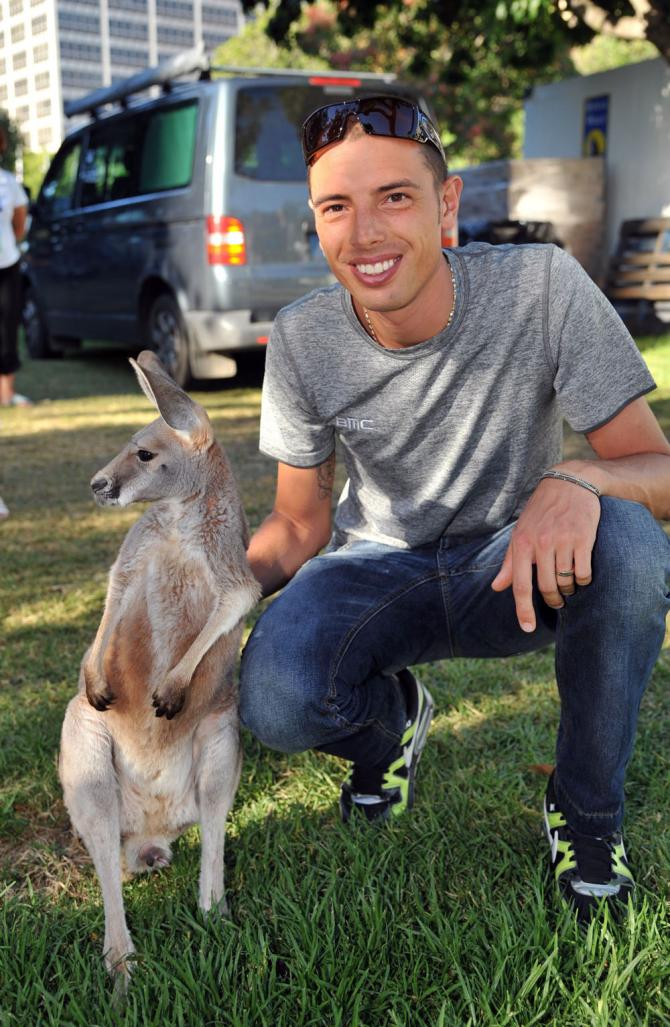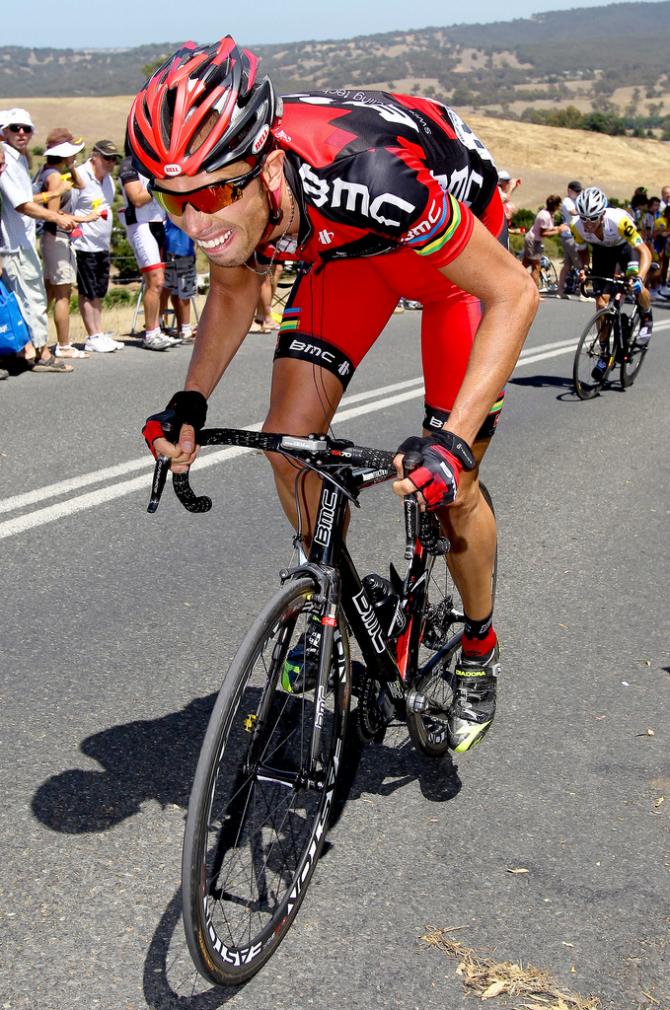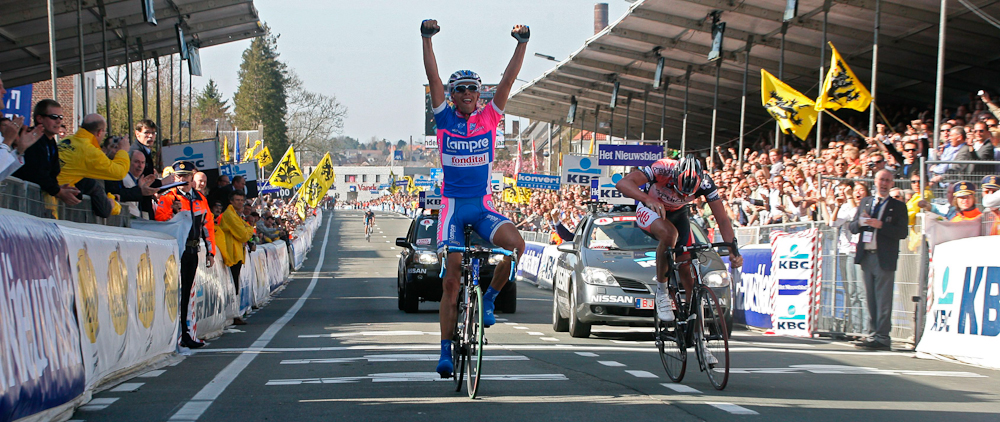Sometimes honesty isn’t rewarded, Ballan claims
Italian looking to return to racing as doping ban draws to a close



Alessandro Ballan has admitted that he is "very bitter" at being the only rider to serve a suspension as a direct result of the long-running Mantova anti-doping investigation and claimed that his ban was for "a mistake" rather than a doping offence.
Phone taps from the Italian police investigation, which began in 2010 and was centred on the links between the Lampre team and Mantova-based pharmacist Guido Nigrelli, suggested that Ballan had undergone a blood transfusion in the spring of 2009, a period when the then world champion was withdrawn from racing by his team.
Ballan later admitted to undergoing ozone therapy to treat cytomegalovirus though he claimed that it did not constitute blood doping. He was eventually handed a two-year suspension by the Italian Olympic Committee in January 2014. The start date was later backdated to August 2013 following an appeal to the Court of Arbitration for Sport, meaning that the Italian’s ban expires next Monday.
Some 28 individuals are facing criminal trial as a result of the investigation, including past and present riders Mauro Santambrogio, Damiano Cunego and Marzio Bruseghin, Lampre manager Giuseppe Saronni and current Omega Pharma-QuickStep doctor José Ibarguen, but Ballan is the only rider thus far to serve a sporting sanction as a result of the inquiry.
"I'm very bitter about that because I was the only person who went before the judge and told the truth, that I underwent a therapy because I was ill, and I was the only one who was banned," Ballan told Cyclingnews. "Maybe if I'd said nothing and stayed quiet, I'd have been able to keep racing. Unfortunately, I went in good faith, because honestly I didn't think I committed such a big crime because I was at home, away from racing, withheld by my team [at the time of the blood transfusion - ed.] Sometimes honesty isn't rewarded."
Ballan accepted, however, that regardless of his attempted justification, CONI was entitled to suspend him for the infraction.
"I'm not saying that I didn't deserve a ban because I made a mistake and I've paid for it. I mean that there are bans and bans. When I've taken part in bike races, I've always been correct and I've done everything as it should have been done," Ballan said. "I can say honestly that I have never altered a sporting performance."
Get The Leadout Newsletter
The latest race content, interviews, features, reviews and expert buying guides, direct to your inbox!
Ballan missed the Spring Classics in 2009 due to illness, but returned to action in the summer following his ozone therapy, going on to win the Tour de Pologne before securing a move to the BMC team for 2010.
The slow-moving nature of the Mantova inquiry meant that a sword of Damocles dangled over Ballan for much of his time at BMC. The team withheld him from racing in the Spring Classics in 2010 and the Giro d'Italia in 2011 following the publication of details of his involvement inquiry in the Italian press.
"In the end, compared to someone who tests positive and is back in the peloton after a year and a half, I spent three and a half years in purgatory, we can call it that, and then I paid with another year and a half of a ban. It was all a bit excessive," Ballan said. "I honestly believe that I can allow myself to say that now, because I accepted the ban, I sat at home and I never caused any polemic. Now I just want to come back and race and show my value."
The 36-year-old Ballan has been in talks with a number of Pro Continental teams about a possible return to racing once his ban expires, though his options are limited by the Movement for Credible Cycling rule which prevents member teams from signing him for two additional years after the end of his suspension.
Ballan had been in talks with UnitedHealthcare, for instance, but the American squad is part of the MPCC. Though not a member of the MPCC, his former BMC squad has ruled out signing him.
"I can wait until November or December but if I don't find someone by then, logically I'd have to start thinking about devoting myself to something else," Ballan said.
"But my idea is to come back and make the whole cycling world understand. Cycling is a sport that has suffered a lot of pressure from doping cases but in my opinion you need to distinguish between someone who has tested positive and someone who has made a mistake like I did."

Barry Ryan was Head of Features at Cyclingnews. He has covered professional cycling since 2010, reporting from the Tour de France, Giro d’Italia and events from Argentina to Japan. His writing has appeared in The Independent, Procycling and Cycling Plus. He is the author of The Ascent: Sean Kelly, Stephen Roche and the Rise of Irish Cycling’s Golden Generation, published by Gill Books.